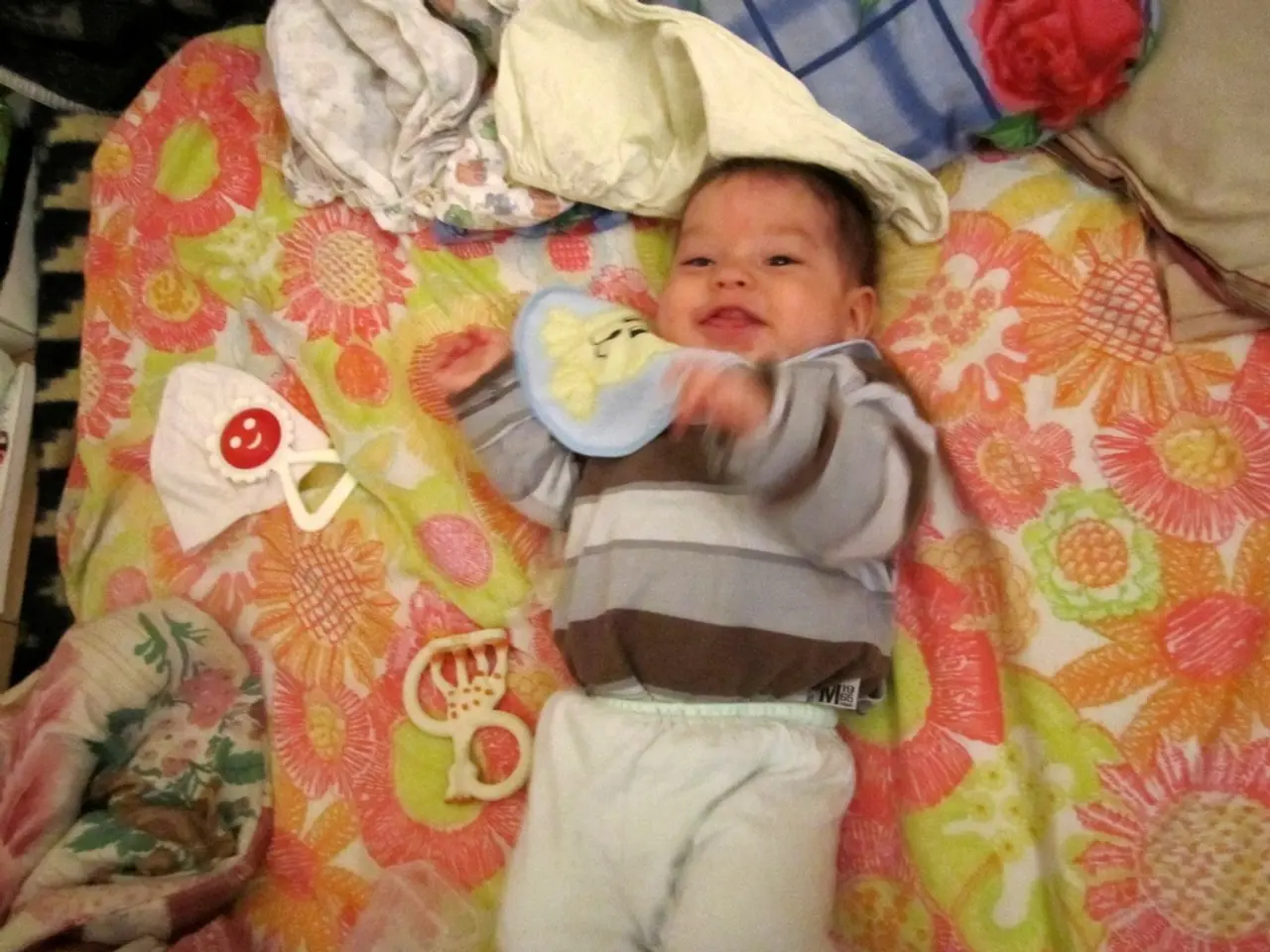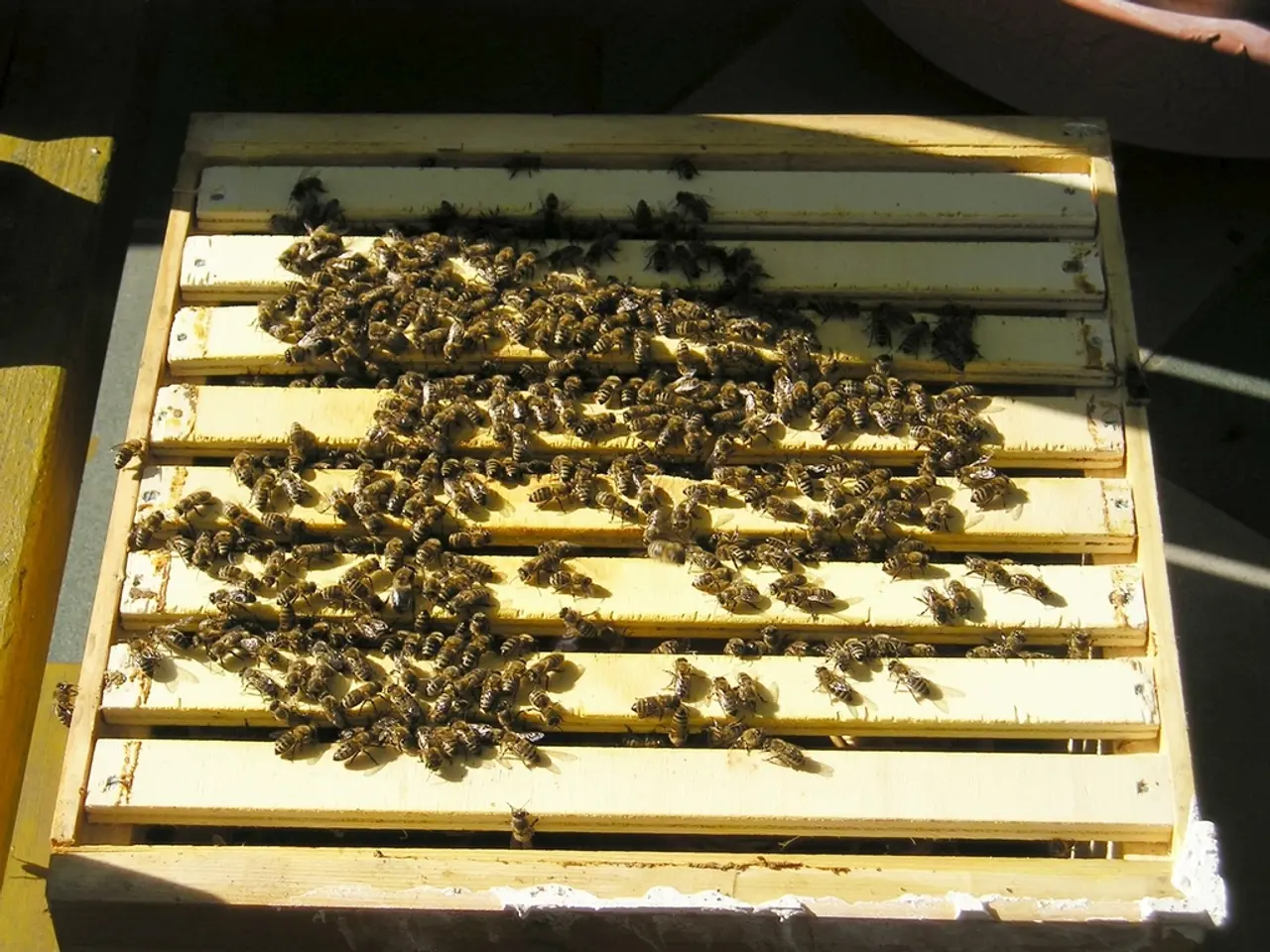Newbie Nigerian Parents: Answers to Common Questions Regarding Newborns
In the exciting journey of parenthood, new parents in Nigeria often have questions about newborn care, feeding, sleeping, health issues, and safety. This article aims to provide practical tips and common concerns, blending hospital advice with socially accepted care practices.
Newborn Care
One of the most common questions is how to bathe a newborn safely. Use warm—not boiling—water and a mild, baby-specific cleanser. Keep the baby in a sitting position to avoid water entering the nose, and clean ears carefully to avoid water lingering. Gently massage after bathing to relax the baby.
When packing for the hospital, include 1-2 going-home outfits, 4-6 newborn diapers, wipes or cotton wool, a receiving blanket or shawl, Vaseline or baby oil for skin protection (especially the diaper area), mild baby soap or cleanser, baby bath and face towels, methylated spirit (Moko) for umbilical cord care, a hot water flask for warming water, and a cup and spoon for feeding before milk comes in.
Feeding
If your breast milk hasn't come in yet, some hospitals may require feeding with formula. Pack a cup and spoon for this purpose to comply with hospital requirements. It's also important to note that baby hiccups after feeds are common and not dangerous.
Sleeping
Newborns should sleep safely on their backs to reduce the risk of Sudden Infant Death Syndrome (SIDS). Though not specified directly, Nigerian pediatric guidance typically recommends placing babies on their backs to sleep, ensuring a firm sleep surface free from loose bedding or pillows.
Health Issues
To care for the umbilical cord, use methylated spirit (Moko) to clean and dry it as commonly practiced in Nigerian hospitals. First-time parents are often advised to monitor feeding patterns, alertness, jaundice, excessive crying, and fever, seeking medical advice promptly if issues arise.
Safety Measures
Use Vaseline or baby oil to protect the baby’s skin from moisture irritation. Ensure hygienic handling and cleaning of feeding utensils and bathing materials. Prevent choking by careful feeding, and supervise sleeping and handling to avoid accidents.
Common Concerns
A healthy newborn has a strong suckling reflex, gains weight steadily, has a soft spot (fontanelle) on the head, and produces wet diapers regularly. Proper latching is fundamental for successful breastfeeding. New moms can ensure this by holding their baby close, aligning the baby's nose with the nipple, and ensuring the baby takes in a good mouthful of breast.
Maintaining a clean and hygienic environment is crucial to protect newborns from infections. Experts recommend placing newborns in a crib or bassinet in the parents' bedroom for the first six months to reduce the risk of SIDS.
To soothe a crying baby, parents should respond promptly to their needs, checking for hunger, discomfort, or a soiled diaper. Gentle rocking, singing, or swaddling can also comfort the baby.
Safety at Home
Implementing safety measures at home, including safe sleeping practices, is important. Avoid exposing newborns to sick individuals, and encourage visitors to wash their hands before handling the baby. Babyproofing your home includes securing furniture, covering electrical outlets, and keeping small objects out of reach.
Feeding and Sleeping Schedules
To establish a feeding and sleeping schedule, parents can feed and put their baby to sleep at the same times each day. Consistency will help establish healthy habits. Dressing a newborn appropriately for the weather can prevent illnesses like colds.
Vaccinations and Formula Feeding
Vaccines are essential for building a newborn's immune system and safeguarding against preventable diseases. Formula feeding safety precautions include sterilizing bottles, nipples, and pacifiers and following the recommended guidelines for preparing formula milk, ensuring the correct ratio of water to powder. Pay close attention to water quality, and use only safe, filtered water.
Breastfeeding Benefits
The benefits of breastfeeding include providing essential nutrients, antibodies, and a sense of security, while the newborn receives optimal nutrition crucial for growth and development. Breast milk is easily digestible, reducing the risk of allergies and infections. Breastfeeding aids in postpartum recovery, helping mothers shed pregnancy weight and lowering the risk of certain cancers.
Consulting a Pediatrician
Consulting a pediatrician is recommended to ensure adherence to the immunization plan and to address any concerns or questions you may have.
This article provides essential guidance and information for first-time parents in Nigeria. By following these tips, you can ensure a happy and healthy start for your newborn.
- To safely bathe a newborn, use warm water and a mild, baby-specific cleanser, keeping the baby in a sitting position, and clean the ears carefully to avoid water lingering.
- Before leaving the hospital with a newborn, pack necessities such as going-home outfits, diapers, wipes, a receiving blanket, Vaseline or baby oil, mild baby soap, a baby bath, face towels, methylated spirit for umbilical cord care, a hot water flask, a cup and spoon for feeding, and a bottle for formula if needed.
- Newborns should sleep on their backs to reduce the risk of SIDS, ensuring a firm sleep surface free from loose bedding or pillows.
- When monitoring a newborn's health, first-time parents are advised to monitor feeding patterns, alertness, jaundice, excessive crying, and fever, seeking medical advice promptly if issues arise.
- To ensure hygienic conditions for a newborn, maintain a clean environment and place newborns in a crib or bassinet in the parents' bedroom for the first six months to reduce the risk of SIDS.
- To soothe a crying baby, promptly respond to their needs, gently rock, sing, or swaddle the baby, and prevent choking by careful feeding.
- To establish a feeding and sleeping schedule, feed and put the baby to sleep at the same times each day, and dress the baby appropriately for the weather to prevent illnesses.
- Implement safety measures at home by avoiding exposing newborns to sick individuals, ensuring visitors wash their hands before handling the baby, and babyproofing the home by securing furniture, covering electrical outlets, and keeping small objects out of reach.




